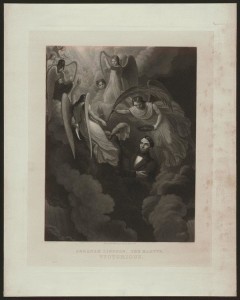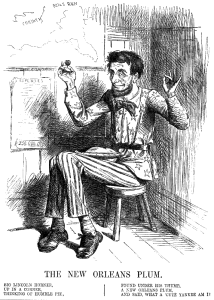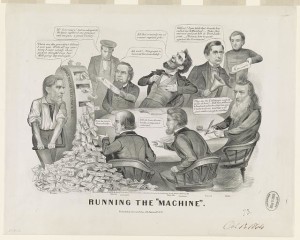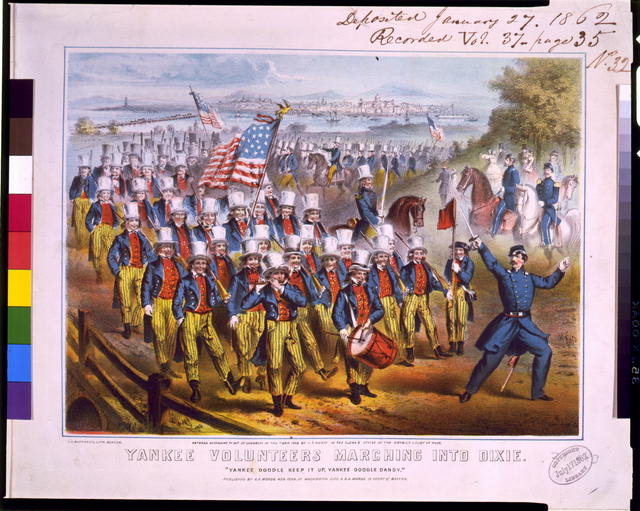the South.
Interested in reading a 115 stanza poem about Abraham Lincoln? You can browse on over to Project Gutenberg and delve into The Atlantic Monthly, VOL. XVI.—OCTOBER, 1865.—NO. XCVI.. Although I did not read it all, one part of the poem reminded me of “Rock and Roll Heaven”. President Lincoln is now standing “In the fairest of Summer Lands” surrounded by his staff and with many others who died for the Stars and Stripes:
There they are all at his side,
The noble hearts and true,
That did all men might do,—
Then slept, with their swords, and died.
The long list of those who died for the Union cause includes Elmer Ellsworth, Senator Edward Dickinson Baker, and Ulric Dahlgren.
I also noticed that one of Abraham Lincoln’s qualities the poem praised was his sense of humor. He was even compared to William the Silent, who was apparently quite a funny guy, as explained in the poem’s only footnote:
How much he cared for the State,
How little for praise or pelf!
A man too simply great
To scheme for his proper self.
But in mirth that strong heart rested
From its strife with the false and violent,—
A jester!—So Henry jested,
So jested William the Silent.
Orange, shocking the dull
With careless conceit and quip,
Yet holding the dumb heart full
With Holland’s life on his lip![D]
FOOTNOTES:
[D] “His temperament was cheerful. At table, the pleasures of which in moderation were his only relaxation, he was always animated and merry; and this jocoseness was partly natural, partly intentional. In the darkest hours of his country’s trial, he affected a serenity he was far from feeling; so that his apparent gayety at momentous epochs was even censured by dullards, who could not comprehend its philosophy, nor applaud the flippancy of William the Silent. He went through life bearing the load of a people’s sorrows with a smiling face.”—Motley’s Rise of the Dutch Republic.
Perhaps a lively national sense of humor is one of the surest exponents of advanced civilization. Certainly a grim sullenness and fierceness have been the leading traits of the Rebellion for Slavery; while Freedom, like a Brave at the stake, has gone through her long agony with a smile and a jest ever on her lips.
I read recently that Abe Lincoln’s sense of humor was appreciated by some Easterners well before he was elected president. William H. Seward spoke at Boston’s Tremont Temple during the 1848 campaign:
He was followed by a speaker from Illinois, a young congressman who spoke in what one paper called a “humorous strain of Western eloquence.” When Abraham Lincoln finished, the audience “gave three cheers for ‘Old Zack,’three more for Governor Seward, three more for Mr. Lincoln, and then adjourned.”[1]
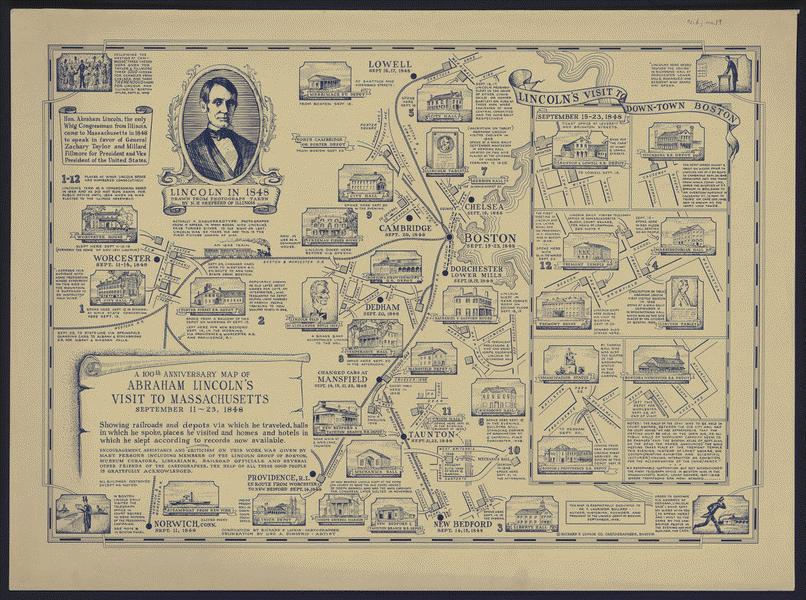
“A 100th anniversary map of Abraham Lincoln’s visit to Massachusetts, September 11-23, 1848.” (Library of Congress)
But the footnote seemed to be kind of a broad generalization. The Mason-Dixon line was made into an impermeable wall, and only the humorless lived south of it. Wasn’t that mindset one of the South’s issues? – the elite stereotyped all Africans as being too inferior to be anything other than slaves. Slavery was, therefore, a just if peculiar institution in the South’s antebellum society.
Apparently, even the eventual hotbed of fire-eating secession could appreciate humor. When William Seward was doing legal work in Charleston, South Carolina in 1849 he was somewhat snubbed socially because he was considered an abolitionist, but “one local paper commended his courtroom argument as ‘lucid and logical, replete with happy illustrations, and interspersed with … refined humor.'”[2]
I guess my prejudices were aroused when I read the second part of the footnote. However, here’s something else I read recently:
There are only two ways to be quite unprejudiced and impartial. One is to be completely ignorant. The other is to be completely indifferent. Bias and prejudice are attitudes to be kept in hand, not attitudes to be avoided.
Charles P. Curtis: A Commonplace Book, Simon & Schuster, 1957.[3]
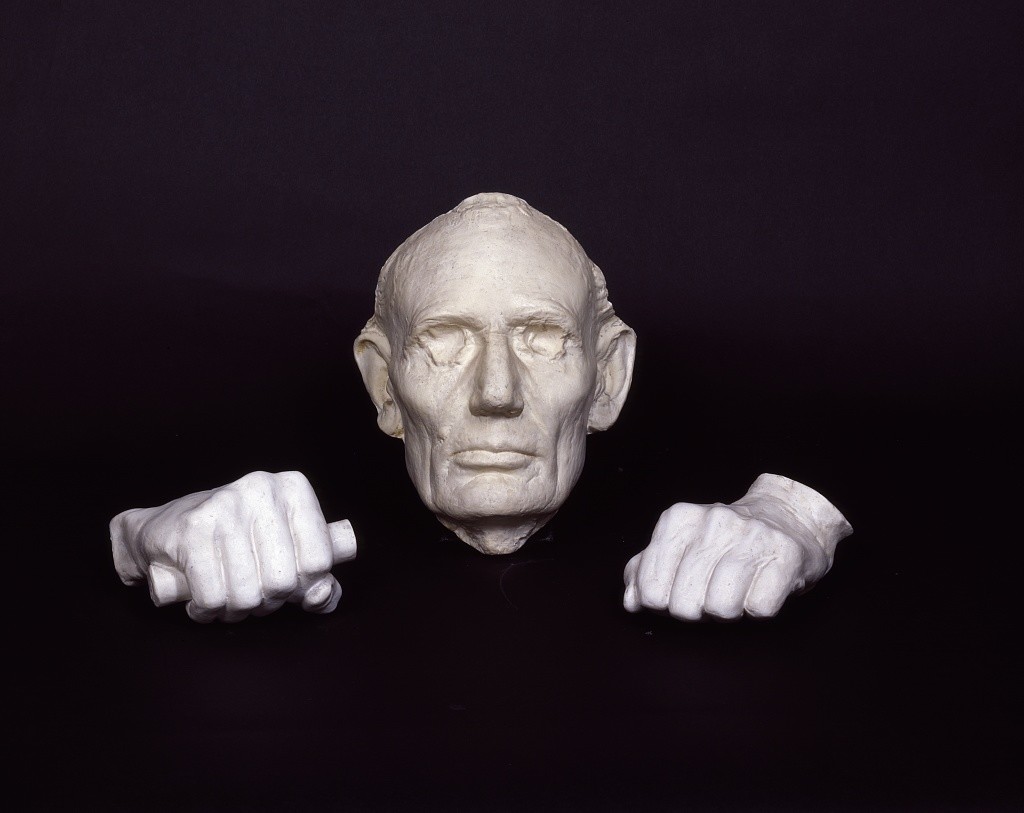
“Life mask and plaster hands of Abraham Lincoln, preserved at Ford’s Theatre, Washington, D.C., where assassin John Wilkes Booth mortally wounded the president in 1865 ” (Library of Congress)
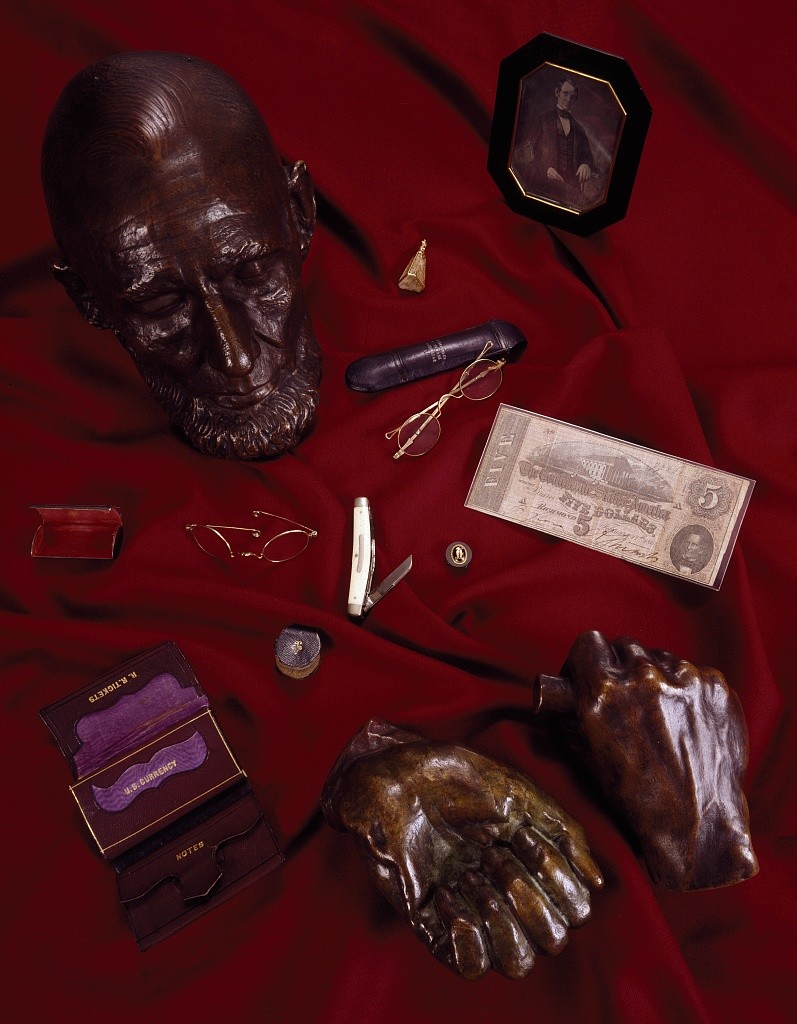
“Abraham Lincoln bronze life mask and hands and what was in his pockets the night he died in 1865, kept at Ford’s Theatre, Washington, D.C. ” (Library of Congress)
Well, it’s Halloween 2015, and earthly Death would seem to be about the most unprejudiced of entities, maybe not ignorant but probably indifferent.

